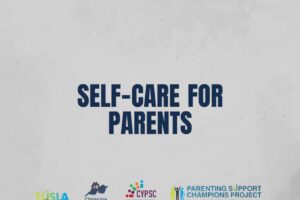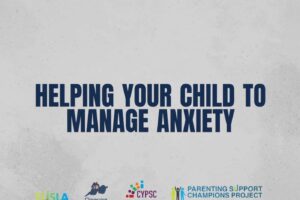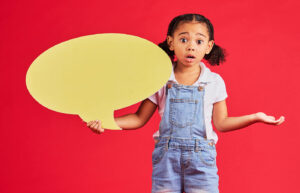Anxiety in children
Anxiety is one of the most common childhood mental health difficulties and is the word used to describe a fear or worry which does not go away.
It’s normal for children to feel worried or anxious from time-to-time. For example, when they’re starting school or nursery, or moving to a new area.
But for some children, anxiety affects their behaviour and thoughts every day. It can interfere with their school, home and social life.
This is when you may need professional help to tackle it.
Symptoms of anxiety in children
Signs to look out for in your child are:

- Finding it hard to concentrate.
- Not sleeping, or waking in the night with bad dreams.
- Not eating properly.
- Quickly getting angry or irritable, and being out of control during outbursts.
- Always worrying or having negative thoughts.
- Feeling tense and fidgety, or using the toilet often.
- Always crying.
- Being clingy.
- Complaining of tummy aches and feeling unwell.
Separation anxiety is common in younger children. Older children and teenagers tend to worry more about school or have social anxiety.
Ref: https://www2.hse.ie/conditions/mental-health/anxiety-disorders-in-children.html
While all children may have feelings of worry at times, anxiety can become a problem if it stops your child doing everyday things such as:
- Chatting to people.
- Going to new places.
- Spending time with friends and family.
- Going to school, college or work.
- Trying new things.
- Having fun.
- Ref: www.childline.ie/anxiety
How to help your anxious child
- If your child is having problems with anxiety, there’s plenty you can do to help.
- Above all, it’s important to talk to your child about their anxiety or worries. Talking to someone can really help when they are feeling anxious.
- If your child feels anxious, he or she is not alone. They have a right to support. Is there a trusted adult they can talk to about how they are feeling?
- It’s important for parents of anxious children to self-care and look after your own self so that you can support your child.
It’s a good idea to seek professional help if your child is always anxious and:
- It’s not getting better or is getting worse.
- Self-help isn’t working.
- It’s affecting their school or family life, or their friendships.
Where to get help for anxiety
- An appointment with your GP is a good place to start. Talk to the GP on your own or with your child. If your child is comfortable they could speak to the GP without you being in the room, with your consent.
- Early intervention for anxiety is helpful. For mild levels of anxiety you can be referred to, or self-refer to, your local Primary Care Psychology service. Young people age 12-18 can attend their local Jigsaw service – if available in your area.
- Your child may be referred to the local child and adolescent mental health service (CAMHS). CAMHS can help if your child has not benefited from a primary level intervention or the child is experiencing it to a moderate to severe level.
- If your child doesn’t want to see a doctor, they may be able to get help from a local youth counselling service.
- yourmentalhealth.ie is a site provided by the HSE. There you can find information about many issues related to mental health and also find information about other support services.
Ref: https://www2.hse.ie/conditions/mental-health/anxiety-disorders-in-children.html
Helping your child cope during anxiety









